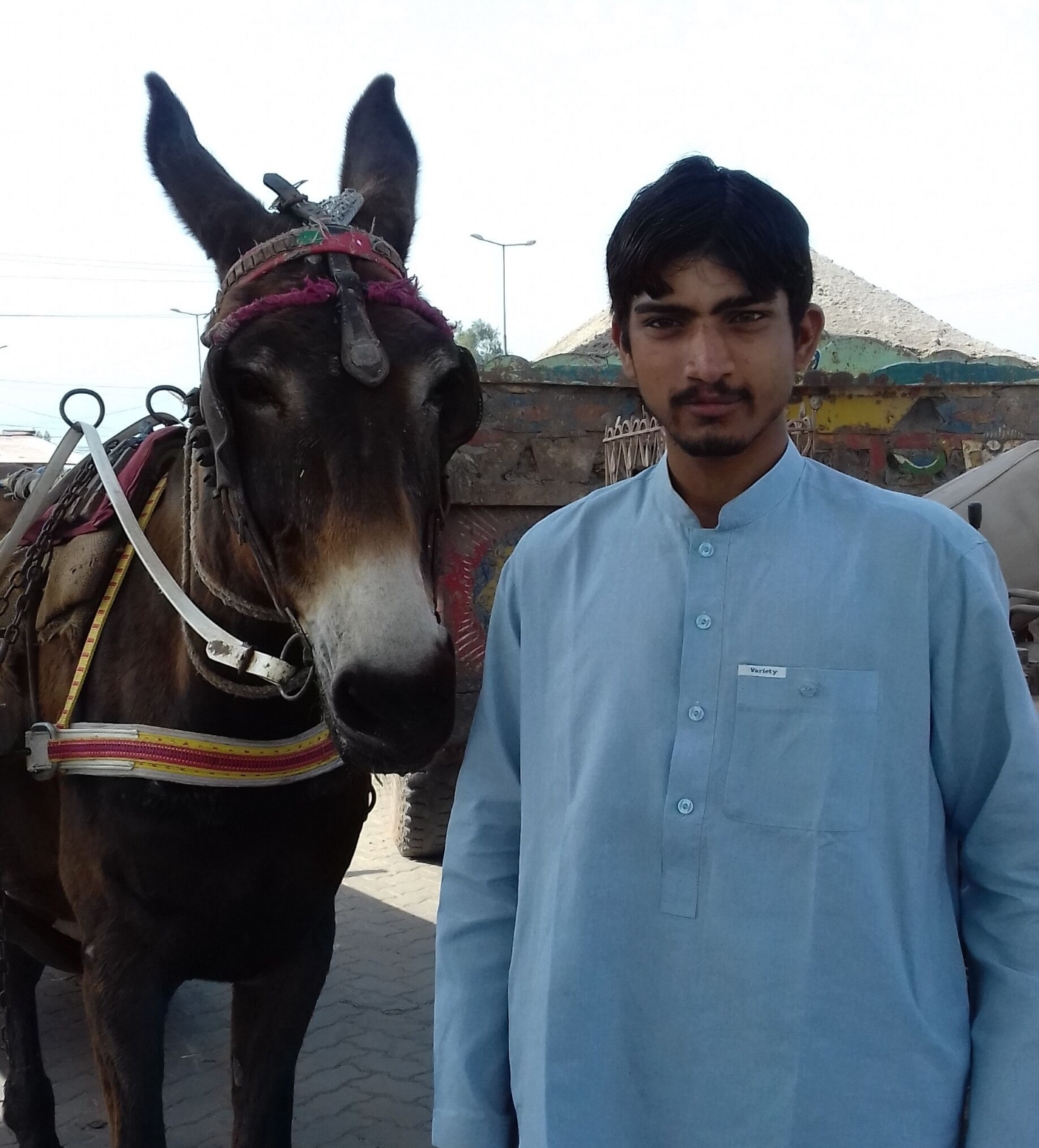The 'first half' of the team arrives in Pakistan - and are warmly greeted by a smiling Ahsan, one of the team's former patients!
IT is not yet midday and, already, the temperature is marching past 30 degrees.
Outside Sialkot Airport, opened 10 years to the relief of travellers spared the gridlock of Islamabad or Lahore, traffic jostles for position. Buses, hand-painted with colourful images of their towns of origin, toot gentle reminders they’re coming through. Seemingly chaotic and more than a little terrifying to the unseasoned traveller, there’s shared acceptance among road users in the Punjab.
No-one’s quite sure who has right of way so they take it in turns.
There’s no angry honks or road rage salutes here. Instead, a chuckle at the white car squeezing between a truck and a sunshine yellow “chinchee”, a three-wheeled bike affair, before it veers off at the last moment to avoid oncoming traffic. More laughter as the two men selling sheep by the dusty roadside attempt to coral them out of harm’s way.
An entire family – mum, dad and four children – sit in a cheery row of the back of a motorbike. On another, a grey-bearded man, sandwiched between his middle-aged son and his grandson.
We pull into a petrol station just outside Gujrat. A handsome boy in a long sky-blue tunic stands up in his wooden cart, holding the reins of his donkey. He’s been waiting for us. He’s come to say thank you.
Two years ago, Ahsan Elahi had his life transformed by the East Yorkshire-based Overseas Plastic Surgery Appeal at the Cleft Hospital in Gujrat, the only one in this country of 179m people.
Born with a cleft lip and palate, he covered his face with his hands, too ashamed to look anyone in the eye, for 16 years. His lifetime.
Today, Ahsan holds his head high.
Now 18, he sells melons, bananas and oranges from the back of his cart to support his family, including a younger sister with learning difficulties. The surgery to repair his face has given Ahsan the confidence to become the main breadwinner.
He speaks Urdu but anaesthetist Dr Zahid Rafique acts as translator “They used to call me “Cursed Face,”’ he said. “Now, they ask me ‘Brother, where has Cursed Face gone? I say I don’t know but I am Ahsan Elahi,” he tells me. “Now, I would like to get married one day.”
Ahsan invites Dr Ijaz Bashir, the medical director who runs the Cleft Hospital, to his home. He invites Dr Bashir every time he sees him. It’s all he has to thank the man who gave him a chance of a better life.
“Before surgery, he was a very depressed young man,” says Dr Bashir. “He was not able to talk well so he hid his face. Now, he invites me to his home again and again.
“That’s what surgery means. It’s not just him, we have a chance to make a different to whole families.”
The Cleft Hospital is perched at the side of the Grand Trunk Road. Its 18-bed unit lies empty today. There are no patients yet in the high dependency unit next door. Cots, for the babies, line the walls.
The children will start arriving on Friday, some of them travelling two days to get here in time. It is a 24-hour trip on cramped public transport from Karachi. But it’s a journey desperate families are only too happy to make.
The camp runs twice a year but only a week at a time with the medics on their feet in the operating theatre for up to 15 hours a day to help as many people as they can.
Theatre sister Annette Middleton surveys the two operating theatres and the marble scrub pit in the room between the two. Inside the theatres are reminders of home.
All the equipment, from the operating table and the overhead lights to the cautorising machine and the anaesthetist’s tubes and monitors - have all been donated to the Cleft Hospital from private and NHS hospitals.
Outdated equipment to the NHS, they’re vital to Opsa’s work in Pakistan. An ever-present reminder that the charity can only help people like Ahsan thanks to the generosity of those at home.
Two nursing assistants – both called Aqsa – appear at the door. They straighten the brightly-coloured covers on the beds in a ward, soon to be filled with the chatter of children.
Mehvis, a tiny woman in a white headscarf, bounds down the corridor into Annette’s arms. There is a real bond here between the East Yorkshire team and the Gujrat nursing staff. Friendships founded on respect and a common purpose to help those in need.
On the floor below the theatres, the speech therapist’s room is just across the corridor from the dental surgery. Multi-disciplinary team work is the order of the day here too.
Dr Bashir points out the photographs of some of the 5,000 children helped by the Opsa team since the hospital opened in 2011. He’s undoubtedly proud of what his hospital has achieved but he knows there are always more patients streaming through the door than can be treated.
“We’ve done a lot,” he says. “But there is always more to do and more people to help.”


